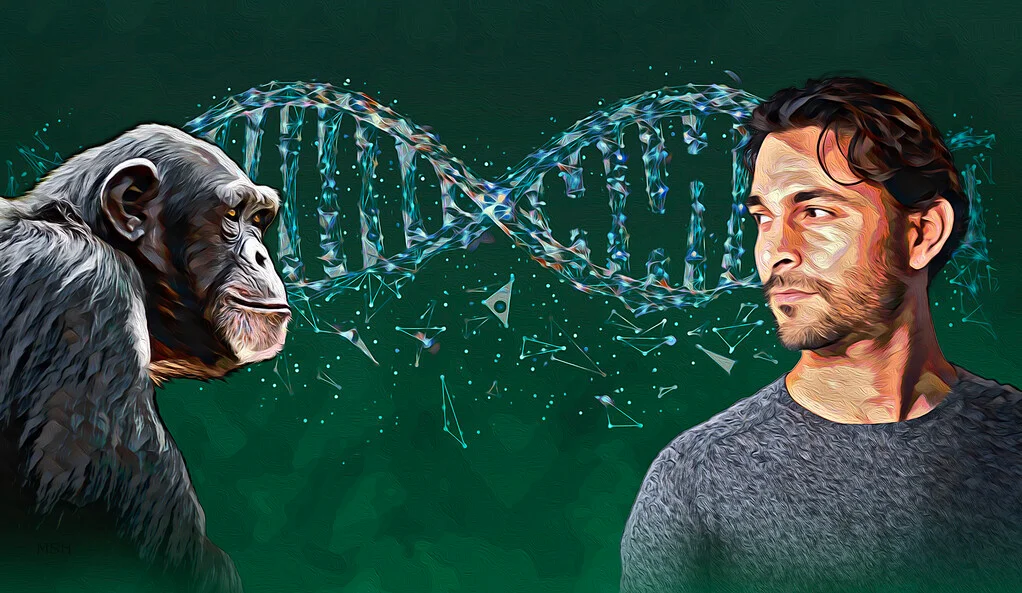Reviewed by Danielle Ellis, B.Sc.Apr 28 2023
As per new research headed by scientists at Yale and the Broad Institute of MIT and Harvard, what the human genome is missing when compared to the genomes of other primates may be as significant to the development of humankind as what has been added at the time of human evolutionary history.

Illustration by Michael S. Helfenbein. Image credit: Yale University
The new results were published in Science on April 28th, 2023. They answer a crucial question in what is understood about historical alterations to the human genome. While a revolution in the ability to gather information from genomes of varied species has facilitated researchers to find additions that are particular to the human genome, like a gene that was crucial for humans to build the capability to speak—less attention has been given to what is lacking in the human genome.
For the new research, scientists employed a further deeper genomic dive into primate DNA to disclose that the loss of around 10,000 bits of genetic data, almost as tiny as a few base pairs of DNA, over the course of human evolutionary history distinguish humans from chimpanzees, which are the closest primate relative.
A few such “deleted” parts of genetic data are closely associated with genes involved in cognitive and neuronal functions, along with the one related to the formation of cells in the developing brain.
The Yale team found that these 10,000 missing pieces of DNA are common to all humans. They exist in the genomes of other mammals.
The authors state that such genetic deletions get preserved in all humans and attest to their evolutionary significance, proposing that they conferred some biological benefits.
Often we think new biological functions must require new pieces of DNA, but this work shows us that deleting genetic code can result in profound consequences for traits make us unique as a species.”
Steven Reilly, Senior Author and Assistant Professor, Genetics, Yale School of Medicine
The paper was one among several published in Science from the Zoonomia Project, a global research collaboration that is cataloging the mammalian genomes’ diversity by comparing DNA sequences from 240 species of mammals that are present currently.
In their research, the Yale team discovered that certain genetic sequences identified in the genomes of a majority of other mammal species, from mice to whales, disappeared in humans. However, instead of disrupting human biology, they state, some of these deletions formed new genetic encodings that vanished elements that would usually switch off genes.
Reilly said that the deletion of this genetic information had an impact that was the equivalent of eliminating three characters—“n’t”—from the word “isn’t” to form a new word, “is.”
“[Such deletions] can tweak the meaning of the instructions of how to make a human slightly, helping explain our bigger brains and complex cognition,” he added.
Massively Parallel Reporter Assays (MPRA) is the technology used by researchers which can concurrently measure and screen the function of thousands of genetic alterations among species.
“These tools have the capability to allow us to start to identify the many small molecular building blocks that make us unique as a species,” Reilly stated.
The lead author of the study is James Xue of the Broad Institute.